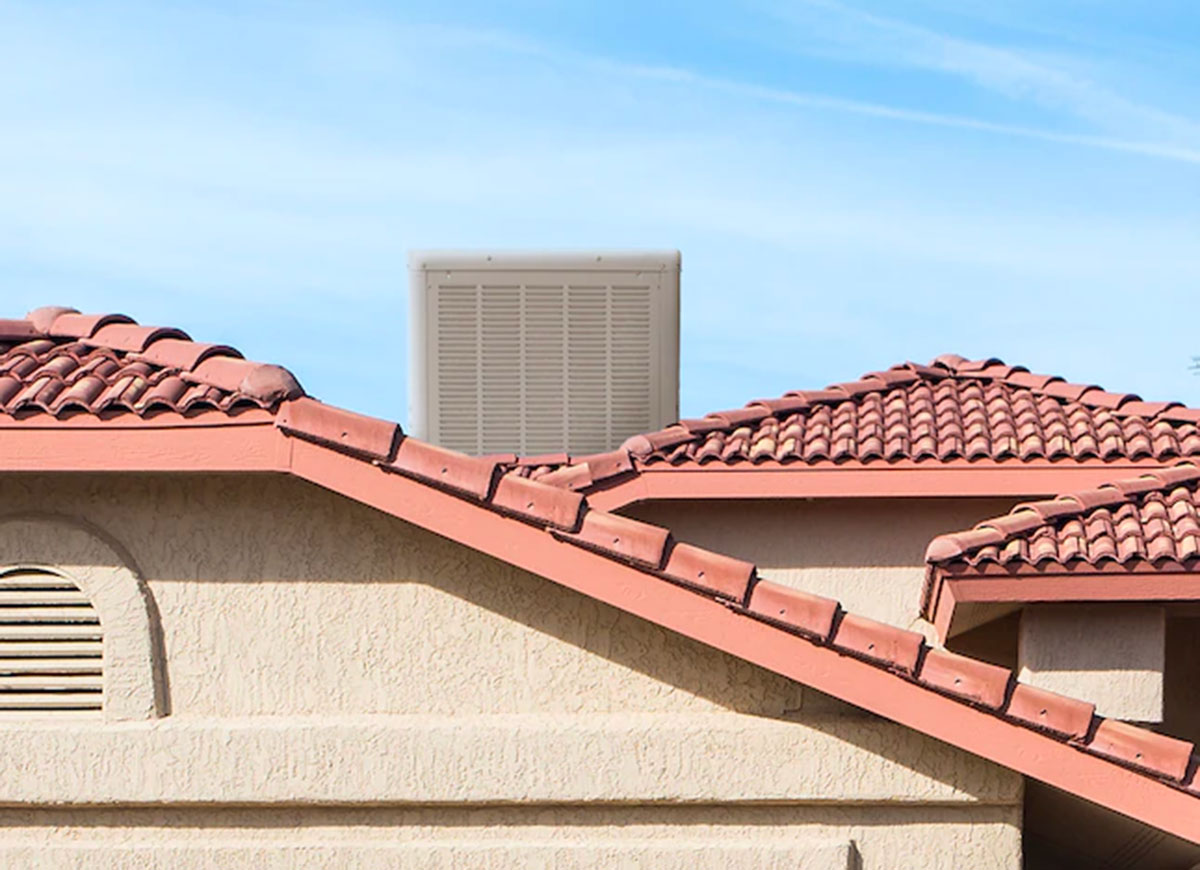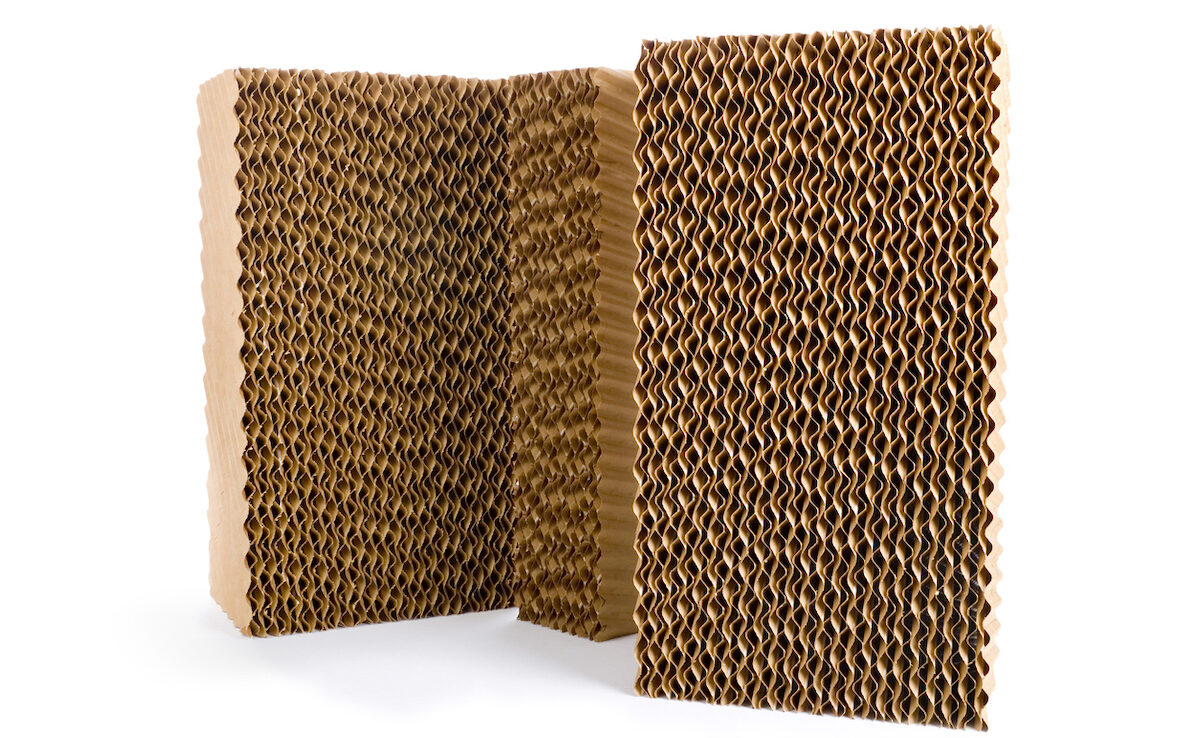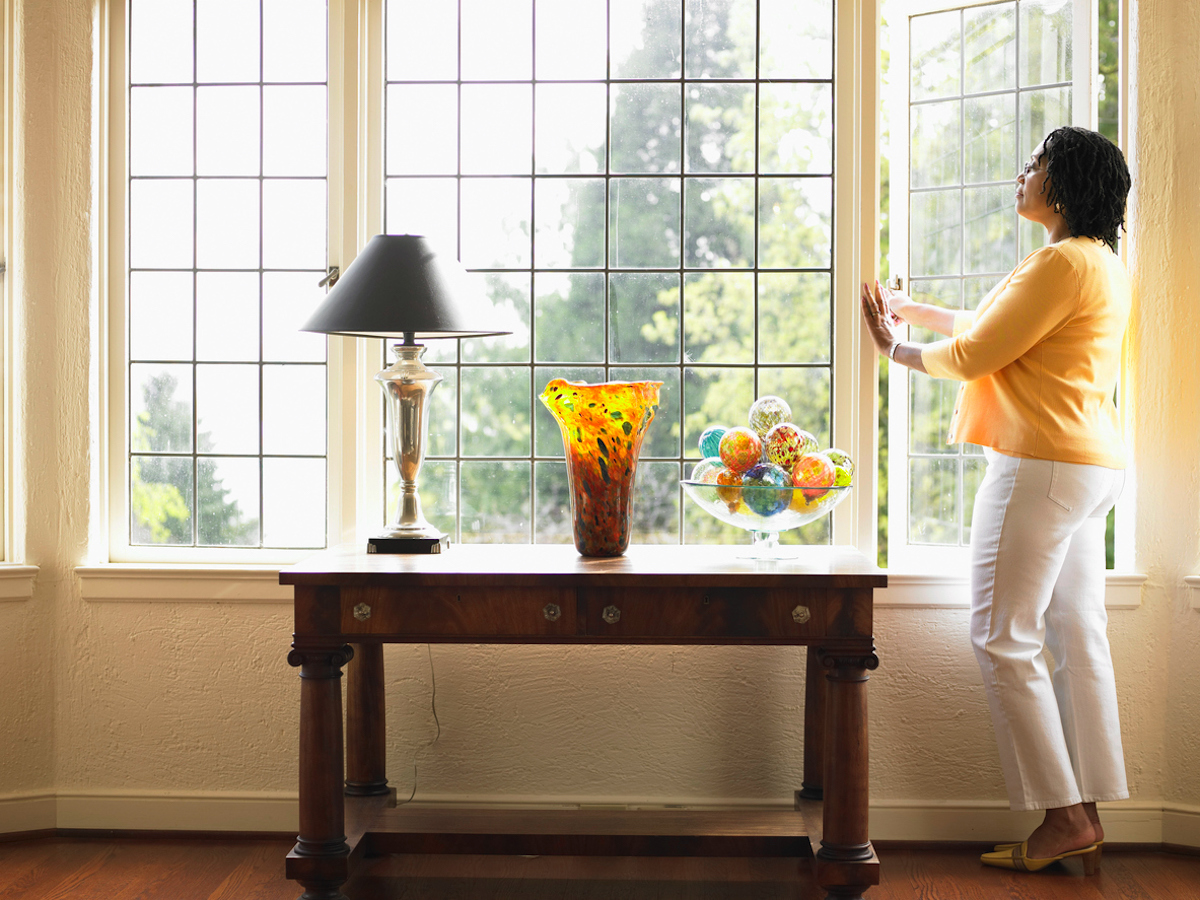

We may earn revenue from the products available on this page and participate in affiliate programs. Learn More ›
Q: I’m getting ready to move across the country to Arizona. A few of the house listings I’ve looked at mention a swamp cooler, which I’ve never heard of before. What is a swamp cooler, and how does it work?
Beating the summer heat can be a challenge no matter where you live. However, swamp coolers are only effective in certain climates, which is why many individuals are not familiar with what they are or how they work.
But what is a swamp cooler, really? Read on to learn more about what swamp coolers are, how they keep homes cool, and how they compare to traditional air conditioners.
RELATED: Why Is My Central AC Not Blowing Cold Air?
A swamp cooler, or evaporative cooler, uses moisture to cool a home.
How does a swamp cooler work? Swamp coolers, also called evaporative coolers, cool the air in a home using moisture. When a swamp cooler is turned on, the base of the cooler is filled with water. The water supply valve continues filling the unit until the float reaches the designated level.
Once filled with water, the swamp cooler’s pump moves the water through distribution lines to the evaporative cooler pads—one of the most important swamp cooler parts. After the pads are moistened, the motor pulls the warm outside air into the home, passing it through the wet evaporative cooler pads, which filter and cool the air. The cool air produced by the evaporative cooling process is then pushed through the vent or ductwork, helping to bring down the indoor temperature.

Our Recommendation: 4,800 CFM 115 V Down-Draft Rigid Roof/Side Evap Cooler (Swamp Cooler) – Get at The Home Depot for $602.88
This efficient whole-house swamp cooler features a 24-gauge galvanized steel exterior with a UV- and corrosion-resistant coating for durability when installed on a roof. It’s designed to cool interior spaces between 800 and 1,650 square feet.
Unlike air conditioners, swamp coolers require open windows and doors to control the flow of cooled air throughout a home.
One unique thing about how a swamp cooler works is that the home’s windows need to be partially opened. Central air conditioners continuously recirculate the air that is already in a home. Leaving a window open lets the cold air out, which requires the air conditioner to work harder to keep the home cold.
Swamp coolers, on the other hand, are open systems. They require a flow of fresh outside air to be pulled through the swamp cooler pads and pushed out as cool air inside the home. This cool air then moves around the interior and displaces the hot air, pushing it back outside.
However, there are times when you may want to close windows or doors when you’re operating a swamp cooler. If you are only trying to cool down a few select rooms in the home, closing the windows and doors to other parts of the home can help the cooler operate more quickly and efficiently and cool down the space.
RELATED: The Best Window Air Conditioners to Cool You Down

Swamp coolers work best for houses in dry climates.
Do swamp coolers work in all climates? Swamp coolers are best-suited for homes in dry climates. As described above, the process of cooling a home with a swamp cooler involves blowing hot air from outside through wet evaporative cooling pads. They cool the air by adding water to it, which also increases the humidity level indoors. In a dry climate, increasing indoor humidity levels can be a good thing.
However, should you try to use an evaporative cooler in a humid climate, it will not work as well. If there is as much water in the air as there is in the cooling pads, the air won’t be cooled down much or at all. This means that the air temperature in the home will remain about the same as the temperature outside.
Swamp coolers are more affordable and energy-efficient than air conditioners.
Compared to complex air conditioner units, swamp coolers are significantly less expensive. A swamp air conditioning unit typically costs between about $50 and $3,500, depending on whether you’re looking for a portable or a whole-home unit. Comparatively, the cost of installing a central air conditioner is typically between $3,800 and $7,480.
In addition to costing less upfront, swamp coolers are also more energy efficient and less expensive to operate. Swamp coolers use between 60 and 80 percent less electricity than central air conditioners. As an example, cooling a 1,500 square foot home with a swamp cooler will typically cost less than 30 cents per hour. To cool that same home with a 4-ton central air conditioner would cost more than $1 per hour.
RELATED: What Is HVAC And What Does HVAC Stand For?

A swamp cooler requires routine maintenance and parts replacement.
Proper maintenance is essential with swamp coolers. Minerals and sediment in water running through the unit can build up in deposits. Too much buildup can interfere with the operation of the unit, which is why swamp coolers should be deep cleaned before every cooling season. Depending on the climate and temperature where you live, and how frequently the swamp cooler is running, it may also be a good idea to perform some mid-season tune-ups.
Additionally, many of the components of a swamp cooler will need to be monitored and replaced frequently. The evaporative cooler pads, for example, should be replaced at least twice during each cooling season. When the unit is continuously operating, the cooling pads should be replaced at least once a month. The swamp cooler’s pump, reservoir, and filter should also be cleaned at least every few months.
If you have allergies, consider adding a filter to your unit. The filter can reduce the dust, pollen, and other allergens that are pulled into the home from outside, making them a key addition for those with asthma or allergies. Don’t forget to also clean your filters each time you replace the evaporative cooling pads.
